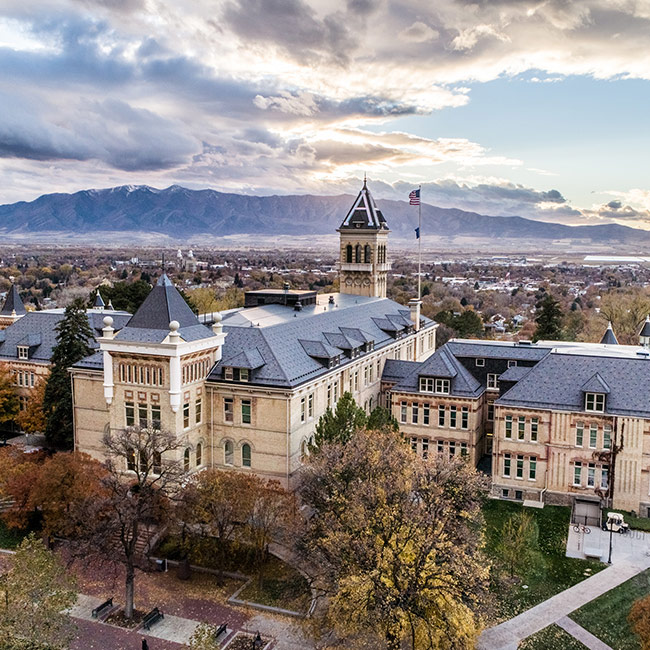About This Degree
Geography is the study of the relationships between human society and the physical environment.
Geography involves environmental studies, human impact on the environment, availability and location of the earth's resources, physical processes that occur at the earth's surface, and the spatial interactions among society and the physical environment.
What You Will Learn
The College of Natural Resources conducts extensive research and development in the geographic information sciences. It works extensively with the Environmental Systems Research Institute software company to assure that graduates of the geography program gain proficiency in the latest tools for analyses of geographic information and mapping of the earth's surface.
Emphases:
Students must choose an emphasis in one of the following areas
Human-Environment Geography:
This emphasis provides a broad overview of the relationships between humans and their environments across different cultures, economies, and geographic locations around the globe. It requires an understanding of the dynamics of geology, meteorology, hydrology, biogeography, ecology, and geomorphology, as well as human behavior, decision making, and perception in relation to the environment.
Geographic Information Science:
This emphasis assists students in gaining a solid foundation of geographic information analysis. Areas of application include geography, natural resources, landscape architecture, and city and regional planning.
ADVISING
At a Glance
College: S.J. & Jessie E. Quinney College of Natural Resources
Department: Environment and Society Department
USU Locations:
- Logan campus
Program Requirements
Career And Outcomes
Career Opportunities
With a degree in geography, graduates can pursue the following careers:
Human-Environment Geography Emphasis
- Community planning and development
- Travel and tourism
- Environmental protection
- International aid
- Writer/researcher
- Local government departments or agencies responsible for transport, tourism, housing, environmental services, recycling, sustainability, regeneration, economic development, etc.
Geographical Information Science Emphasis
- Community planning and development
- GIS specialist
- Transportation management
- Cartographer
- Environmental consultant
- Aerial photographic technician
Job Outlook
USU Locations

LOGAN CAMPUS
Admission
Admission Requirements
In addition to Utah State University’s admissions requirements, the geography program has special requirements:
- First-Year students: First-Year students admitted to USU in good standing qualify for admission to this major.
- Transfer Students: Transfer students from other institutions or from other USU majors need a 2.5 total GPA for admission to this major.
International students have additional admissions requirements.
Take The Next Step
Visit Campus
Schedule a campus tour and come see what it's all about.
Cost and Aid
Learn about tuition, scholarships, and other financial aid opportunities.
How to Apply
Start your degree path and apply now.
You May Also Be Interested In

Earth Science Teaching
Take coursework integrating geology, biology, chemistry, engineering, mathematics, and physics so you have a solid understanding of our natural surroundings, as well as hands-on classroom experience teaching students earth science.

Environmental Studies
Study the complex opportunities, issues, and concerns that surround humans’ relationships with nature in this interdisciplinary field, encompassing ecology, politics, economics, geography, and societal management.

Geography
Obtain a broad understanding of the physical processes that make up Earth, from the natural elements to how they impact societies and various cultures of the world surrounding them, whether you focus on Utah or elsewhere in this minor.

Recreation Resource Management
Gain a solid understanding of how humans interact with the world in outdoor recreation, a firm foundation of natural resources and scientific knowledge, and learn the best management practices for the various roles of public lands.

